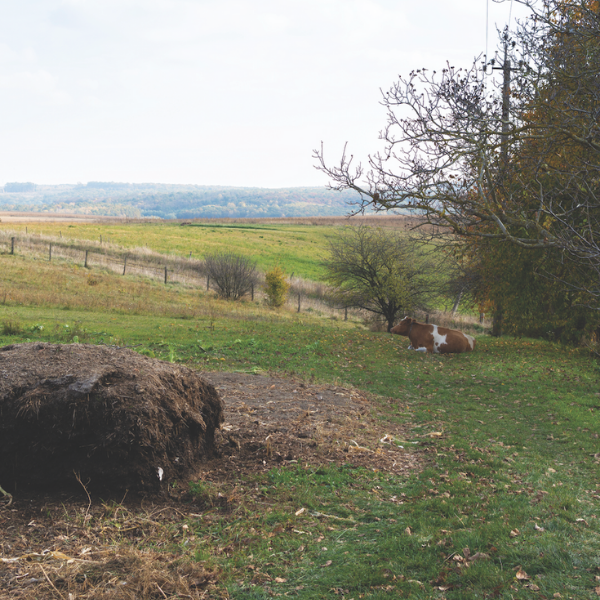By Chris Cooper, PhD, and Kyla Szemplinski, MS It is well known that horses produce an abundance of manure, totalling about 50 pounds every day. Add multiple horses and bedding material, you will soon find your property overwhelmed with manure material.
Without proper management, horse manure can pose a serious risk to not only the environment but also a health hazard to horses, other animals and people.
Fortunately, there are effective manure management steps to help horse owners stay ahead. While composting manure is the most environmentally, cost-effective manure management approach, some horse owners might not have sufficient space or facilities to compost manure. This leaves horse owners in a bind and some make the decision to spread fresh manure and bedding materials onto their pastures.
Some horse owners might not realize that this management step is highly discouraged and should be avoided when possible. Fresh manure on pasture can have multiple drawbacks:
- Parasites: fresh manure might contain parasite eggs (strongyles, roundworms, etc) that can contaminate pastures, feed and water and infect other horses.
- Pests: fresh manure is the ideal breeding ground for other barn pests such as stable flies, face flies, houseflies amongst others.
- Water: nutrients leached from manure can contaminate water sources. Your local soil and water conservation office and/or Extension office can help identify areas of where NOT to spread fresh manure.
- State and local regulations: Tennessee and most other states have regulations that mandate manure composting and water quality. Large scale composting requires permits (at least in Tennessee) that can be applied for on the state’s Department of Agriculture website. Please contact your county’s Department of Agriculture to start the permit application process.
Tips if Spreading Fresh Manure
If spreading fresh manure cannot be avoided, there are steps to reduce contamination to the horses and environment:
- Spread thinly based on soil tests.
- Spread in the spring and summer, not when it is rainy or when the ground is frozen.
- DO NOT spread fresh manure on pastures that are currently being grazed by horses. Parasite eggs can survive in manure for weeks or months so spread fresh manure on pastures that are being rested.
- DO NOT spread fresh manure near any source of water, floodplains or where water runs seasonally or after rains.
Composting is the BEST, most cost-effective, environmentally friendly, manure management method, and a manure compost pile does not have to be extremely large. At minimum, a compost pile should be at least one cubic yard (3’ x 3’ x 3’) and located on a non-permeable surface such as concrete, away from wooden fences and other buildings, and not visible from the main entrance of the barn.
Hauling Away Manure
Transporting manure off site with a commercial service is another option horse owners might consider. It is not the cheapest option or most practical for horse owners that live in more rural areas. Hauling away manure would be a good option for owners who have a good number of horses but not enough acreage or time to deal with manure. Horse owners can load manure and stall waste into a dump truck and haul a full load to a commercial facility that specializes in manure composting. Some facilities will charge either a drop-off fee or take the load free of charge. Horse owners without a dump truck can contact commercial services to see if roll-off containers are available and can be hauled away when full. Fees vary in pricing depending on how large and how long the roll-off container will stay at your farm. Always make sure the commercial service you contact is licensed to compost before contacting anyone.
Any further questions about manure management, manure composting or any equine/livestock related questions, please do not hesitate to contact your county’s Extension office. UT-TSU Shelby County Extension can be reached at 901-752-1207 during normal business hours Monday through Friday 8am-4:30pm.









